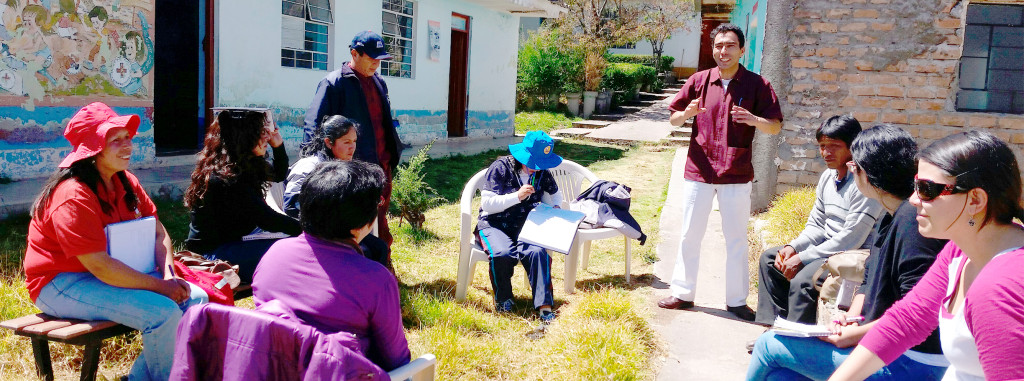Learning from the challenges that Peru faces against malnutrition
Peru is currently considered a world reference in its fight against CCM: from 2007 to 2013, CCM has been reduced from 28.5% to 17.5% in children under five. First results show that CCM would be reduced to about 14% in 2014.
Peru is honored to have been selected as host country to implement the second SUN Learning Route, which is counting with the presence of SUN member countries delegations from Lao PDR, Sri Lanka, Madagascar, Tanzania, Senegal, Guatemala and El Salvador.
 SUN Learning Routes’ objective is to share among participating countries experiences and lessons learned to reduce Chronic Child Malnutrition (CCM), with the aim to promote the design and implementation of national strategies and effective interventions to improve nutrition.
SUN Learning Routes’ objective is to share among participating countries experiences and lessons learned to reduce Chronic Child Malnutrition (CCM), with the aim to promote the design and implementation of national strategies and effective interventions to improve nutrition.
Peru is currently considered a world reference in its fight against CCM: from 2007 to 2013, CCM has been reduced from 28.5% to 17.5% in children under five. First results show that CCM would be reduced to about 14% in 2014.
Peru is honored to have been selected as host country to implement the second SUN Learning Route, which is counting with the presence of SUN member countries delegations from Lao PDR, Sri Lanka, Madagascar, Tanzania, Senegal, Guatemala and El Salvador.
The first Route was carried out in Senegal in May 2014 and it was attended by a Peruvian delegation, among other national teams; that experience has been very valuable for the design of this Route. During this 7-days Learning Route, currently on going, several are the experiences shared by Peru.
During the first day (Monday, September 08th) we had the opportunity to understand the main political and institutional milestones that lead to considerably decrease the level of malnutrition in the country. The morning counted with the participation of representatives from Civil Society Organizations and the Ministry Development and Social Inclusion (MIDIS).
Among the main ideas and lessons emerged during those early sessions:
- the importance of political commitment and the role of the Civil Society to reach long-term agreements that can be maintained throughout various governments;
- strategy for public management to link the budget allocation to measurable products and outcomes in favor of the population;
- the establishment of policies and mechanisms to facilitate inter-sectoral coordination;
- the registration and identification of the child to access health services and social programs, and
- the design of policies and strategies specially oriented to benefit citizens’ needs.
Each participating country brings a very different reality, which contributes to enrich to the discussion and exchange of ideas. In the first working sessions (Experience Fair), country delegations have shared their own experiences and wills.
As the host country, we hope to show the main developments and actions implemented to reduce CCM; at the same time, we look forward, with great expectation, to know the different experiences from the other national teams to benefit from their recommendations and practices on how we could improve our own performance. Field visits began on Wednesday, September 10th, in the region of Ayacucho.
In the following days, participants will have the opportunity to deepen the knowledge on policies and strategies presented in Lima by looking at their practical implementation; they will visit highland Andean rural areas and some specific interventions, such as a health center, a monitoring community centre, and “healthy families” will receive them.
They will have the chance to observe and compare the urban and rural reality, especially when looking at the services for citizens’ care. Field experiences will also allow participants to understand some of the challenges Peru is facing in rural areas in its fight against CCM and appreciate the cultural richness and diversity of landscapes of our country.